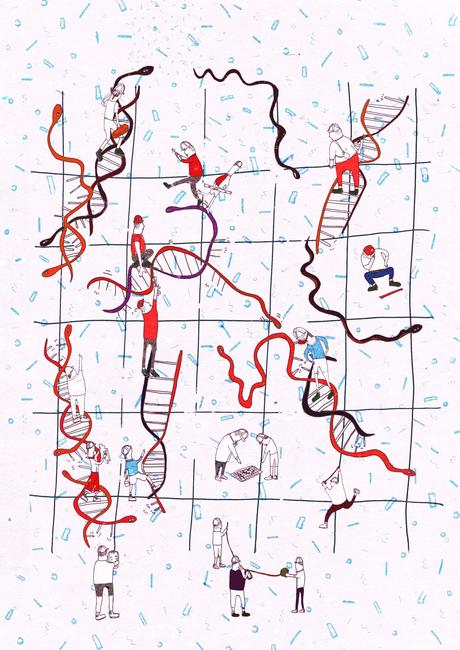Big data beats cancer

Researchers from the University of New South Wales have found a way to use existing ‘big data’ to help determine why particular types of cancer develop, how to diagnose those cancers earlier and, ultimately, how to better tailor treatment therapies for patients.
The research was led by Australian Research Council Future Fellow Dr Jason Wong, group leader of Bioinformatics and Integrative Genomics at UNSW’s Lowy Cancer Research Centre.
While it has long been known that DNA mutation leads to cancer, so far the contribution of only one promoter mutation has been definitively proven — the telomerase reverse transcriptase (TERT) gene.
By analysing over 20 million DNA mutations from 14 different types of cancer, the UNSW team determined that mutations are particularly prevalent in the areas of the genome labelled ‘gene promoters’, which are responsible for the way genes are expressed, ultimately determining cell type and function. It is here that damaged DNA is repaired, preventing our cells from becoming cancerous.
Normally our bodies are quite good at repairing themselves but, as Dr Wong explained: “There are certain parts of our genome that are poorly repaired when we sustain damage from mutagens, such as UV light and cigarette smoke.”
Avoiding excessive exposure to harmful environmental factors like UV radiation and tobacco smoke can reduce the number of cancer-causing mutations occurring in our DNA, but Dr Wong said: “Our study highlights the need for further research on the role of gene promoter mutations in cancer development.”
The key here is the system known as nucleotide excision repair (NER), the only DNA repair mechanism that can reverse mutations caused by UV light. The proteins which bind to our DNA to control gene expression can block NER leading to an increase in DNA mutations in gene promoters. Dr Wong believes that a compromised NER system leads to increased mutations at gene promoter sites, which leads to cancer.
Co-author, haematologist and UNSW Associate Professor John Pimanda said that the key to uncovering their results was “simply by asking the right questions” while making use of existing publicly available data.
“We didn’t need to spend time and money recruiting patients, investigating their cancers and sequencing their cancer genomes. All of this data was available to researchers on public data sharing platforms.”
Supported by the Cancer Institute NSW’s inaugural Big Data, Big Impact Award, Associate Professor Pimanda believes this research “highlights the returns that can result from investing in bioinformatics and genomics research”.
The data used came from the Wellcome Trust Sanger Institute, the International Cancer Genome Consortium and The Cancer Genome Atlas. The study was published in the journal Nature and received support from Cancer Australia and the Cure Cancer Australia Foundation.
Antibiotics hinder vaccine response in infants
Infants who received antibiotics in the first few weeks of life had significantly lower levels of...
Colossal announces 'de-extinction' of the dire wolf
Colossal Biosciences has announced what it describes as the rebirth of the dire wolf, which would...
Aspirin could prevent some cancers from spreading
The research could lead to the targeted use of aspirin to prevent the spread of susceptible types...




